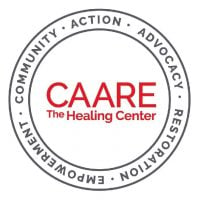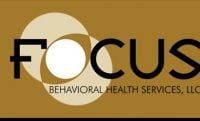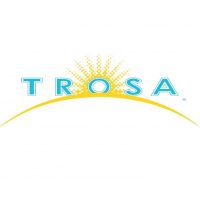Carolina Behavioral Care - Durham Office
Drug Rehab Center in Durham, North Carolina
- Substance Abuse
- Opioid Addiction
- Drug Addiction
Carolina Behavioral Care - Durham Office in Durham, North Carolina is a respected addiction treatment facility offering comprehensive care and support, including therapy, medication management, and aftercare, to individuals struggling with substance abuse and mental health issues.
About This Durham, NC Facility
Carolina Behavioral Care - Durham Office is a well-respected Addiction Treatment Facility in Durham, North Carolina. Founded in 1982, the facility provides unparalleled care to those struggling with Opioid Addiction, Substance Abuse, Drug Addiction, Alcoholism, and Mental Health issues. Carolina Behavioral Care - Durham Office provides a variety of Aftercare Support, Drug Rehab, Dual-Diagnosis, Outpatient, and Detox Levels of Care for those in need. To ensure the highest quality of care, the facility is certified by the Joint Commission and has obtained a license from the North Carolina Substance Abuse Professional Certification Board. Furthermore, the facility accepts most major private health insurance plans. Carolina Behavioral Care - Durham Office is dedicated to helping individuals on their path to recovery, offering comprehensive and caring support.
At Carolina Behavioral Care - Durham Office, all services are tailored to meet the needs of each individual. The team’s goal is to help clients gain control of their addictive behaviors, and they offer a range of therapies to do so. Through one-on-one counseling, group therapy, and cognitive behavioral therapy, clients learn how to recognize and manage negative thought patterns and behaviors, and gain the skills necessary to cope with their addiction. Clients also gain access to a variety of support services such as relapse prevention, aftercare support, and family therapy to ensure long-term success. Carolina Behavioral Care - Durham Office also provides medication management and medication-assisted treatments, such as Suboxone, to help clients begin and maintain their recovery journey.
Genders
Ages
Modality
Additional
Conditions and Issues Treated
Using both legal medications and illegal substances in order to maintain an addiction is substance abuse. Illegal substances can become addictive after a single use. If you are obtaining legal medications illegally, you may be suffering from substance abuse.
Fortunately facilities like Carolina Behavioral Care - Durham Office in Durham, NC are here to help.
Opioid addiction treatment facilities in North Carolina, like Carolina Behavioral Care - Durham Office cover both illegal and prescription opioids abuse. Most plans include detoxification and subsequent medications to ease the process. Behavioral therapies and counseling are also necessary to resolve the root cause of addiction.
A dual diagnosis is when someone deals with both alcohol and mental or emotional disorder. Emotional trauma, bipolar disorder, schizophrenia, depression can be part of dual diagnosis therapy. It must happen simultaneously to get care for these conditions to handle any of them effectively.
Levels of Care Offered
This center offers a variety of custom treatment tailored to individual recovery. Currently available are Aftercare Support, Detox, Drug Rehab, Dual-Diagnosis, Outpatient, with additional therapies available as listed below.
Detox is a drug rehab process that is designed to remove the drug addict from the drug safely. The problem with solely using detox as a sobriety tool is that it alone provides no therapy or counseling. If a person goes through detox and returns to their everyday life, they may begin using again once the detox has worn off.
Detox does not help with cravings, so for some addicts, this can be extremely difficult and should be both done and supervised by medical professionals. Aftercare is crucial, so selecting a facility that offers additional services is important.
An outpatient treatment program is set up to help with alcohol or drug addiction, or a co-occurring disorder. The patient must attend the North Carolina facility for their therapy and other programs but are able to return home each night. The frequency of mandatory attendance decreases after much of Carolina Behavioral Care - Durham Office‘s program is complete.
Treatment is just the first step to maintaining sobriety. After treatment, aftercare support at Carolina Behavioral Care - Durham Office helps the individual adjust to a life without substances. This support may involve a sober living home in or near Durham, NC, career counseling, or educational assistance. This is when a relapse prevention plan begins to take shape.
Carolina Behavioral Care - Durham Office‘s Therapies & Programs
Spousal relationships bear the brunt of alcohol and drug dependence. It becomes critical to submit the relationship to couples therapy to prevent straining it further. Some facilities like Carolina Behavioral Care - Durham Office in Durham, NC offer couples therapy options to manage intimate partnerships amid the recovery process. Other couples-focused treatment plans can provide the patient and their partner tools to get things back to normal.
When family members are more proactive and involved in the treatment procedure, it encourages the patient to advance his or her progress. Moreover, it shouldn’t be ignored that genetics play a role when it comes to addiction, so it’s better to approach the problem as a unit. Also, with proper education, family members can help an individual avoid addiction triggers and guide him or her in making lifestyle changes necessary for his or her sobriety.
It has been said that unhealed trauma is the root of most addictions. Trauma therapy is a way of addressing trauma while in a safe situation in order to heal. Healing past traumas and introducing coping strategies are strong foundations for sustained recovery from addiction. This may involve individual or group counseling or both, in a Durham, NC facility. Other forms of therapy have been proven to assist in healing past traumas.
Dialectical Behavior Therapy (DBT) helps those who attend Carolina Behavioral Care - Durham Office understand how their feelings, beliefs, and thoughts affect their behaviors. DBT is particularly useful for people with self-harming behaviors, as well as those with substance abuse disorders. DBT teaches people how to tolerate distress, regulate their emotions, and how to become mindful.
Cognitive Behavioral Therapy (CBT) is a type of psychotherapy that focuses on the underlying thoughts and behaviors that caused the problem of addiction in the first place and may cause a relapse. Negative feelings are common in substance abuse disorders, and if not recognized, they can cause co-occurring disorders.
CBT involves strategies that help to change the thinking and behavioral pattern by cognitive restructuring. In simple terms, it helps to remove negative thoughts and provides long-term benefits. Also, CBT promotes self-awareness, self-control, and healthy ways to respond to negative thoughts. It can be administered as a mono-therapy as well as a part of combination therapy.
Payment Options Accepted
For specific insurance or payment methods please contact us.
Is your insurance accepted?
Ask an expert, call (888) 674-0062
Carolina Behavioral Care Associated Centers
Discover treatment facilities under the same provider.
- Carolina Behavioral Care in Hillsborough, NC
- Carolina Behavioral Care - Hillsborough Office in Hillsborough, NC
Learn More About Carolina Behavioral Care Centers
Additional Details
Specifics, location, and helpful extra information.
Durham, North Carolina 27704 Phone Number(919) 972-7700 Meta DetailsUpdated November 25, 2023
Staff Verified
What else do people call Carolina Behavioral Care – Durham Office?
People have occasionally also searched for “Carolina Behavioral Care in North Carolina”
Patient Reviews
There are no reviews yet. Be the first one to write one.
Durham, North Carolina Addiction Information
North Carolina ranks 29th in the nation for overall substance abuse. Many of the drugs abused in the state are illicit, and many of these are opioids. Prescription opioids are readily available due to the high rates of medical workers prescribing them. The number of prescriptions has increased tenfold since the 1980's. Opioid overdoses are the most common type of death in North Carolina.
Over 8% of the population in Durham abuses drugs, and this number continues to rise. Prescription opioids, heroin, and cocaine are the most commonly abused drugs in the city. Marijuana is also a problem, with many people using it as their first drug. About 26% of HIV/AIDS cases are attributed to injection drug use. Local officials have started to offer various programs to help those affected by addiction.
Treatment in Nearby Cities
- Troy, NC (73.4 mi.)
- Hillsborough, NC (11.5 mi.)
- Apex, NC (21.7 mi.)
- Pilot Mountain, NC ( mi.)
- Knightdale, NC (29.4 mi.)
Centers near Carolina Behavioral Care - Durham Office




The facility name, logo and brand are the property and registered trademarks of Carolina Behavioral Care - Durham Office, and are being used for identification and informational purposes only. Use of these names, logos and brands shall not imply endorsement. RehabNow.org is not affiliated with or sponsored by Carolina Behavioral Care - Durham Office.


